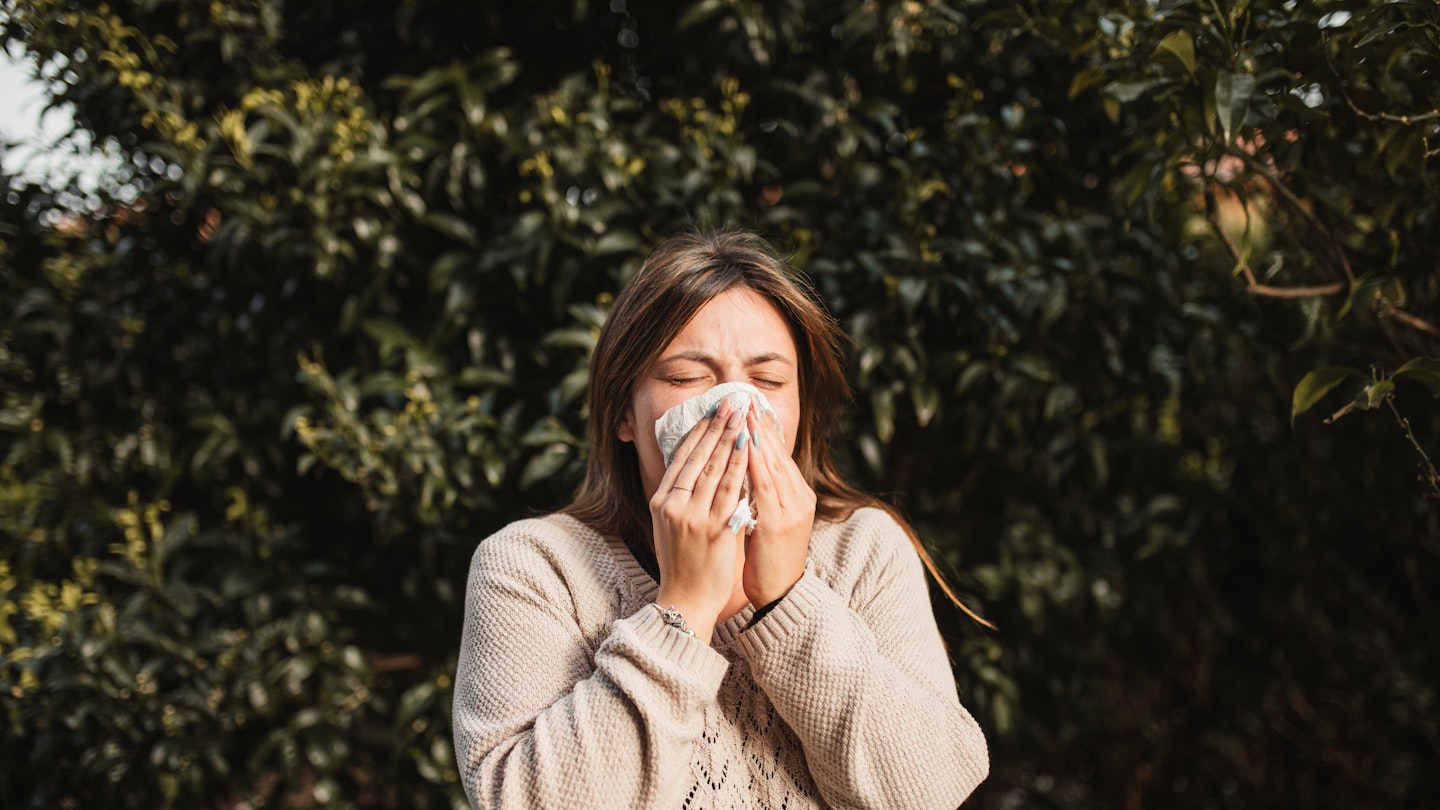It's that time of year again. Your eyes and nose won't stop watering, you've got a sore throat, and actually, it's turning into a suspicious tickle.. Wait... is that Hayfever or Covid? Yes, it's the question we hoped we wouldn't still be asking ourselves this summer, but here we are.
Dr Luke Kane is an NHS GP working in central London. He has extensive international experience and worked in an Ebola Treatment Centre in Sierra Leone during the West African Ebola Epidemic of 2014-2016. Here, he outlines the symptoms to watch out for with coronavirus (Covid-19).
What are the symptoms of seasonal allergies?
Seasonal allergies, or 'hay fever' symptoms, are a snotty nose, sneezing, an irritating itch in your nose or throat and a blocked nose. Sometimes, in severe cases it can cause a red rash, sore throat and wheezy breathing.
Are there seasonal allergies kicking in right now?
Hay fever is mainly caused by grass and tree pollen which floats through the air. Most people are allergic to grass pollen, which peaks later in the year during late spring and early summer. Tree pollen allergies start a little earlier and I would expect to usually start seeing patients in my GP surgery with runny noses in April. We haven’t seen seasonal allergies kicking in yet but there will be a time soon when we have hayfever alongside coronavirus infections.
What are the symptoms of coronavirus?
The main symptoms of coronavirus (Covid-19) are a high temperature, a new, continuous cough and a loss or change to your sense of smell or taste.
It is difficult, if not impossible, to differentiate between the flu and coronavirus without a test. A common cold rarely gives you a fever and you will have more nasal congestion.
Is there a sensible way to tell coronavirus and the common cold or allergies apart?
The key difference here is a fever. If you feel a little under the weather with a runny nose and no fever - you probably have a normal cold. If you have a fever or dry cough then you may have coronavirus (Covid-19) and should self-isolate for seven days. This is to protect others in the community from catching the virus from you.
What’s a normal temperature?
A normal temperature is less than 37.8 degrees celsius. You often feel a bit shivery or shakey with a fever and may look flushed or a bit sweaty. You will be hot to touch but may feel a bit chilly yourself.
When should I call 111?
You should call 111 when you need advice or medical treatment quickly, and you cannot wait for an appointment to see your doctor. If you need emergency medical treatment, you must call 999. An emergency is when someone needs medical help to save their life.
NHS 111 can help if you have an urgent medical problem and you’re not sure what to do. To get help from NHS 111, you can go to 111.nhs.uk (for people aged 5 and over only) or call 111. NHS 111 is available 24 hours a day, 7 days a week.
If you’re Deaf and want to use the phone service, you can use the NHS 111 British Sign Language service available in your country:
England – NHS 111 (BSL) interpreter service
Scotland – NHS 24 111
Wales – NHS 111 Wales
Northern Ireland – NHS 111 Northern Ireland
You can also call 18001 111 on a textphone.
When should I inform my employer I am unwell, ie before I have called 111 or afterwards?
Use the 111 website for advice and then speak to your employer. If you have any symptoms of a cough or fever then you need to self-isolate at home and inform your employer.
READ MORE:
Coronavirus: Widespread Transmission Is Now 'Highly Likely' As UK Cases Reach 36
